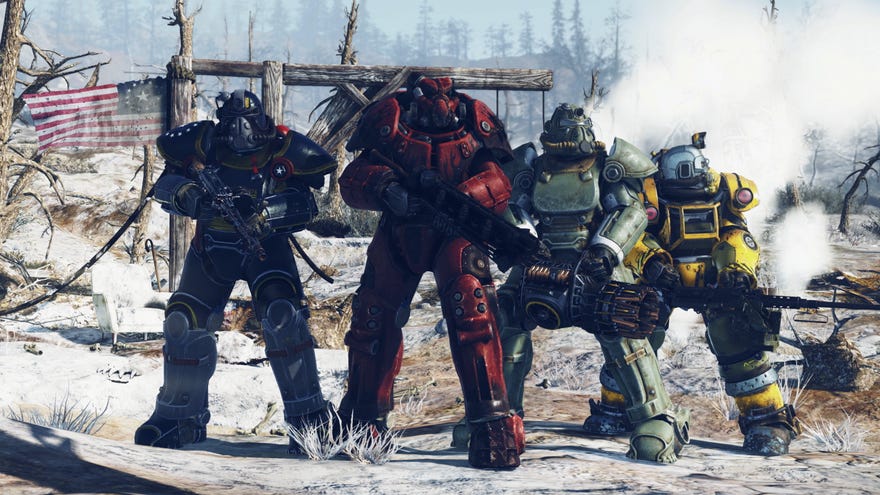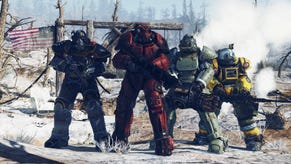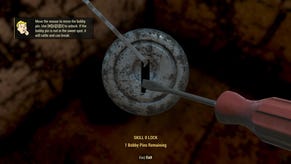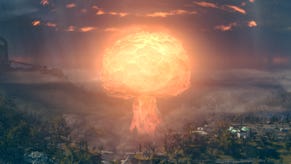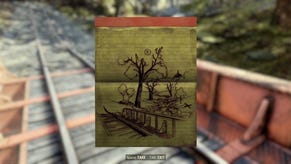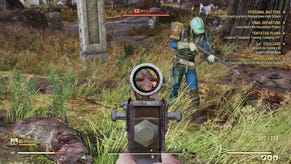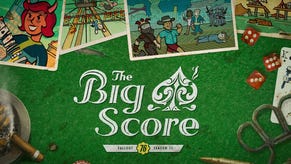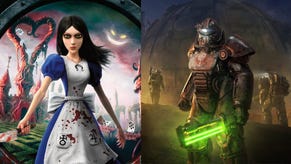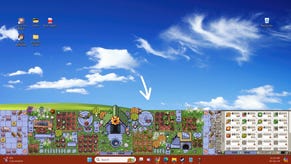Bethesda answer questions on Fallout 76's perks, anti-griefing systems
Uranium fever
As QuakeCon 2018 continues, so too does Bethesda Game Studio's steady drip-feed of information about their games, and specifically about post-apocalyptic multiplayer survival RPG Fallout 76. Its E3 showing left a lot of questions unanswered, and last night Gary Steinman, Todd Howard, Jeff Gardiner, and Chris Meyer shed some light on those lingering unknowns, including player progression and anti-griefing measures.
When asked by Steinman, associate director of content, who was acting as the ‘Q’ part of the Q&A, to describe the game, game director Howard jumped right in to address a more overarching question that’s been in the minds of fans since E3: just how Fallout-y is this Fallout? “I think like 80% of it is the Fallout everyone is used to, and the other 20% is really different," he said.
Obviously, those percentages really depend on what you think makes the series what it is, but the panel dug more into what’s new. First up was the perk system, which now comes in the form of cards you can assign to each of your skills, as well as mutations caused by radiation exposure that bring both unique abilities and significant drawbacks. You can watch the Vault-Tec-style introduction below:
The team elaborated on perk cards, explaining that you will be able to choose from a selection of cards on level up, and that they can stack to form more powerful skills. Notably, the game has no level cap, but stats stop going up at level 50, instead encouraging experimentation by continuing to offer choices of new perk cards. Randomised card packs given at certain intervals will also encourage players to step outside their usual builds and try new things. All perks are also changeable any time – though menuing doesn’t pause the game, so best to make sure you’re safe first!
They also showed off a little of the photo mode, which gives me a great hope that I’ll be able to live out my dream of playing entirely as a photojournalist, and revealed that you can change all elements of your character customisation, from hair to gender, at any time.
Tragically, not everyone is planning to play this game as a photographer, and the panel went on to explain how they are disincentivising griefing. It’s possible to ignore and block players, as well as participate in or mute local voice chat, but there are also specific systems in place when it comes to PvP.
When you first shoot another player, you won't deal too much damage until the other player responds, at which point a real fight breaks out. Higher level players won’t receive many benefits from preying on lower level players, either, and if someone is killed without fighting back at all, their killer becomes a “wanted murderer.” The murderer receives no reward for killing the player who doesn’t respond, and instead, a bounty is placed on their head. Other players can see their location on the map, and if they are killed they will lose the bounty money from their own pocket. “We turned assholes into interesting content,” Howard summarised.
Another big question mark in my mind is on the subject of nukes, which players can find and detonate, destroying other players, their buildings, and the environment around them. Using them is also incentivised as it'll create a minature wasteland-within-a-wasteland, with new enemies and rewards. And where the anti-griefing systems may have allayed some of my fears, the discussion here did not. “Nukes, very cool,” began Steinman. “Nukes are very cool,” agreed development director Meyer. Sure, they were only talking about the game feature, but it still seems to run counter to the pretty straightforward message that nuclear war is bad, actually. Their discussion suggested the same blasé celebration as the video from E3 called “Atomics For Peace:”
Regardless, you can blueprint your homes to rebuild them easily if they are hit by a nuke, or just to move them around if you’d like to relocate. In fact, Howard said that being able to destroy buildings at all had less to do with wanting players to knock down each other's hard work and more to do with avoiding griefing again – without destruction mechanics players could lock others inside with no way for them to escape.
In the same vein, dying isn’t a really a terrible punishment in Fallout 76. If you are killed, you’ll lose your junk, which is useful for building, but no other items. So it’s best to store any valuable crafting materials you have before exploring a dangerous area, but if you do end up taking a fall and can’t recover what you dropped, it shouldn’t be too tricky to reclaim by looting elsewhere. Respawning is also free unless you want to use it as a fast travel opportunity, which costs some money depending on how far you want to go.
If you’re super eager to test out all of this information for yourself, it might be best not to hold your breath just yet. Though the beta will begin in October, Howard emphasised that it would be a significant stress test. “It’s gonna break,” he promised. “We’re pretty sure of that. Get ready.” (To be fair, he also promised they would fix it fast.)
Fallout 76 is coming out on November 14th, and will only be available through Bethesda.net. You can watch the full Q&A below:
